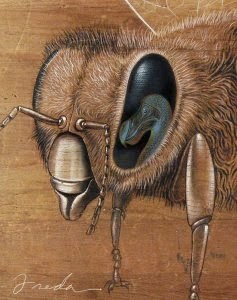| Online: | |
| Visits: | |
| Stories: |
Harvard Professor Warns, CCD is Only the First Alarm Bell from Bees
While chemical corporations and critics of bee activists want people to remain focused on addressing symptoms of colony collapse disorder, and fund research aimed at that goal, one Harvard PhD stands out as he presses on pesticides.
Researcher and Harvard professor, Chengsheng (Alex) Lu, has been outspoken about the effects of neonicotinoid pesticides and their contribution to colony collapse disorder. Especially so, since conducting his own tests for a number of years now.
But he now warns that a pollinator drop could be the least our worries at this point. That it may be a sign of things to come – bees acting as the canary in the coalmine. That not only are we connected to bees through our food supply, but that the plight that so afflicts them may very well soon be our own.

A lot of farmers appear to be happy with what neonicotinoids offer – less pesticide use, less work. However, this is because they are treated on seeds and become a part of the plant. Unfortunately, they cannot wash off and are non-discriminating when it comes to friendly pollinators.
Lu finds a vicious cycle: not only do neonicotinoids wind up in the whole part of the plant (pollen) but he finds that they show up in end products like high fructose corn syrup which is fed back to bees through unsuspecting beekeepers. (Findings like this makes one wonder what the additional implications are for human health)
I wrote about his work previously here:
Read More : http://www.newssum.com/harvard-professor-warns-ccd-first-alarm-bell-bees-3605




